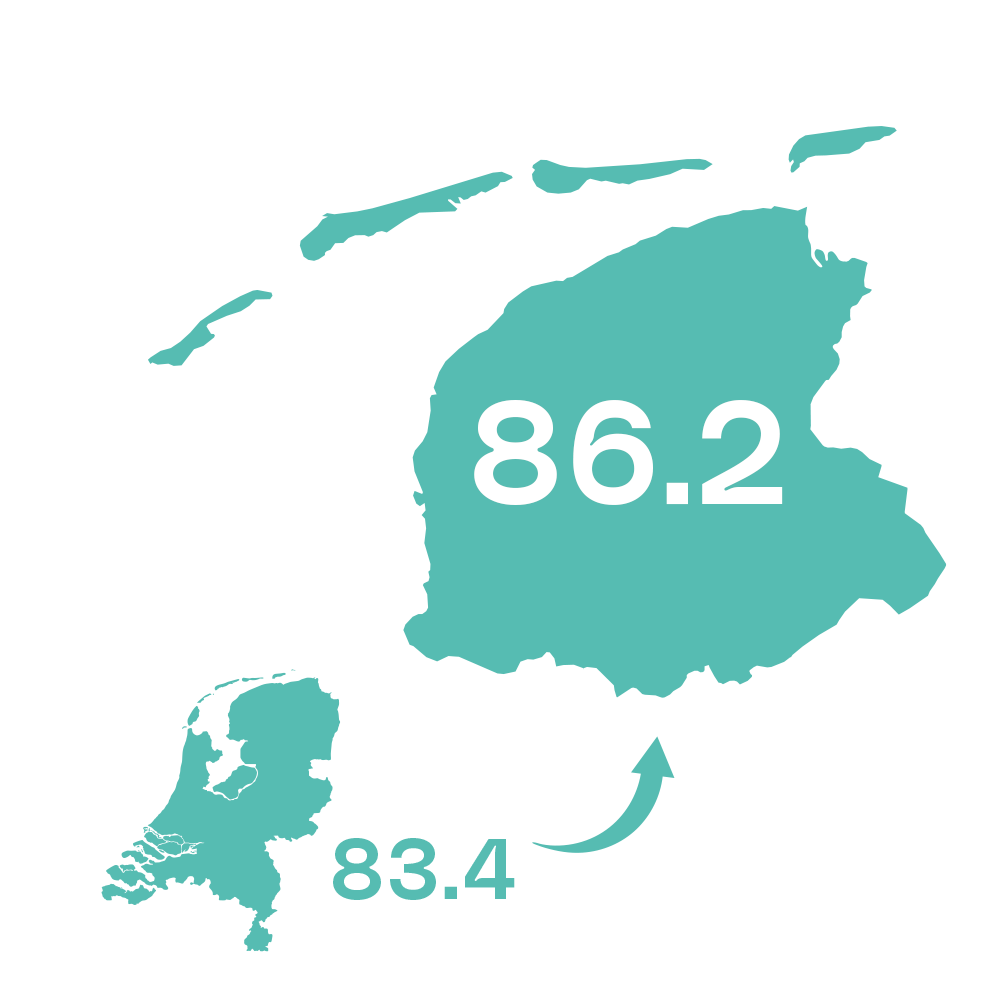Life satisfaction¶
Life satisfaction is closely linked to the circular economy, which, in a broad welfare sense, promotes not only environmental sustainability but also improved social and economic well-being, fostering healthier communities and more resilient livelihoods.

Friesland scores 86.2, outperforming the rest of the Netherlands, which scores 83.4, according to Planbureau Fryslân[1]. The Netherlands, in turn, scores 7.6, placing it at the top of the EU, ahead of the EU average of 6.6, according to Eurostat[2]. These scores indicate that Friesland is well-positioned to leverage circular initiatives that drive both environmental improvements and broader social and economic benefits. By surpassing national and EU averages, Friesland shows its capacity to effectively integrate circular economy principles, contributing to healthier communities, resilient livelihoods, and overall life satisfaction.
Improving life satisfaction
To ensure that this transition continues to support, rather than hinder, happiness and well-being, Friesland can focus on the following actions:
- Maintaining and expanding community-centered circular initiatives that contribute to healthier, more resilient communities, such as local food systems, green spaces, and sustainable urban planning, all of which enhance social well-being and life satisfaction.
- Ensuring circular economy policies integrate well-being outcomes, measuring and prioritizing how circular initiatives positively impact quality of life, such as through reduced pollution, more green spaces, and fostering sustainable lifestyles that boost overall happiness.
Blue Delta Monitor. (2024). Gelukkige mens. Retrieved from: Blue Delta Monitor Website
Eurostat. (2024). Life satisfaction by sex, ages, educational attainment and domain. Retrieved from: Eurostat Website